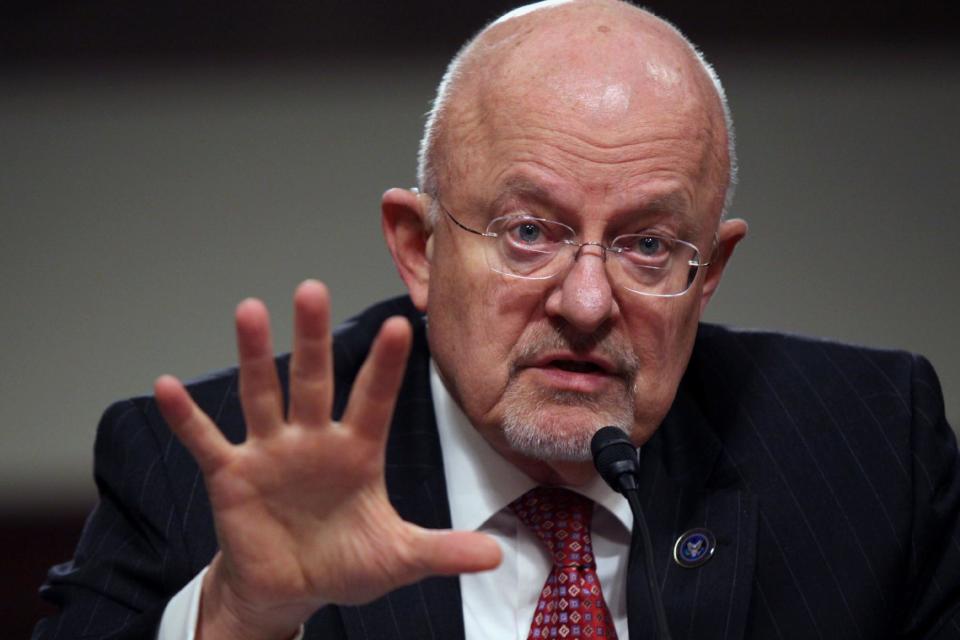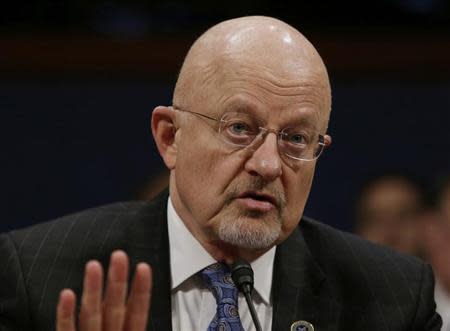U.S. intelligence director does not believe Karzai will sign security pact
By Patricia Zengerle WASHINGTON (Reuters) - The U.S. director of national intelligence said on Tuesday he does not expect Afghan President Hamid Karzai to sign a bilateral security agreement with the United States. The Obama administration has been pressing Karzai to sign a security pact that would authorize U.S. troops to remain in Afghanistan after 2014. Karzai has refused so far to sign, although Washington insists a deal must be approved before it will agree to leave a troop contingent in Afghanistan. "I don't believe that President Karzai is going to sign it," National Intelligence Director James Clapper said when asked at a U.S. Senate Armed Services Committee hearing if it would best if Washington simply waited for the election of a new Afghan president for the signing of an agreement. The United States would like to leave more than 10,000 troops in Afghanistan for counterterrorism and training of Afghan forces after U.S. forces formally withdraw at the end of this year following a 13-year mission in Afghanistan that began after the September 11, 2001, attacks. The White House says that in the absence of a bilateral agreement, all U.S. forces will withdraw at the end of the year and that a decision by Karzai is needed within weeks. Karzai has called that an empty threat and suggested any security deal could wait until after Afghanistan's April elections. The Wall Street Journal reported on Monday that the United States is considering waiting until Karzai leaves office before completing the pact and deciding on a troop presence beyond 2014. "If he's not going to be part of the solution, we have to have a way to get past him," the Journal quoted a senior U.S. official as saying. "It's a pragmatic recognition that clearly Karzai may not sign the (deal) and that he doesn't represent the voice of the Afghan people." The White House, asked about the report, said it was standing by its previous comments on the issue. In his opening statement at the Senate hearing, Senator Carl Levin, the Michigan Democrat who chairs the committee, criticized Karzai. "Whoever the next Afghan president is, he is likely to be more reliable than President Karzai, and his signature is likely to instill more confidence than would Karzai's signature," Levin said. NATO chief Anders Fogh Rasmussen said earlier this month that Karzai was unlikely to sign a pact and would probably leave the choice for his successor. (Reporting by Patricia Zengerle; Editing by Bill Trott and Meredith Mazzilli)


